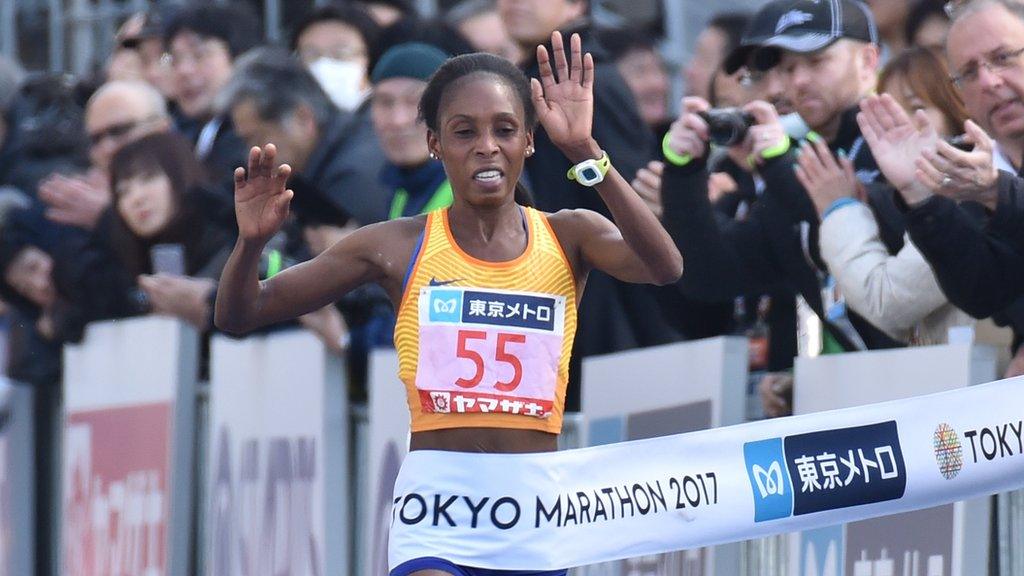Sarah Chepchirchir: Kenyan handed eight-year ban for doping violation
- Published

Sarah Chepchirchir has been handed a second doping ban since winning the Tokyo Marathon in 2017
Kenya's Sarah Chepchirchir has been handed an eight-year ban after the former Tokyo Marathon winner was found to have violated anti-doping regulations for a second time.
The Athletics Integrity Unit (AIU) said the 39-year-old had returned an adverse analytical finding for testosterone in a sample collected at a marathon in Thailand in November.
Chepchirchir's results will be disqualified from 5 November last year, with her ban backdated to 22 December.
She was previously banned for four years in 2019, backdated to 11 April 2018, because of abnormalities in her athlete blood passport.
Chepchirchir, who won the Tokyo Marathon in 2017, had the option to have her latest ban reduced by one year by formally admitting to the charge, but failed to do so by the AIU's deadline of 11 February.
Last month the AIU banned Kenyan pair Hosea Kimeli Kisorio and Ayub Kiptum for three years, for use of recombinant erythropoietin (EPO) and testosterone respectively.
Meanwhile, the World Anti-Doping Agency (Wada) has referred Nigeria's anti-doping agency to the Court of Arbitration for Sport over its alleged non-compliance.
The Nigerian body was sanctioned by Wada in November for failing to address "critical requirements", but disputes Wada's allegations.
Under Wada's recommended punishments, Nigeria's flag would not be flown at competitions and the West African nation would be ineligible to host major sporting events until reinstatement conditions were met.